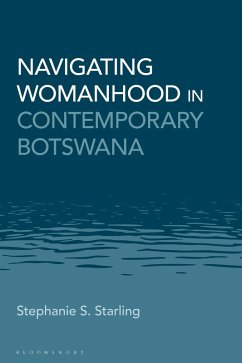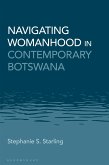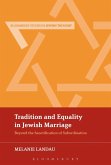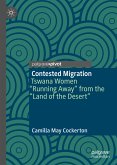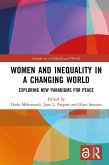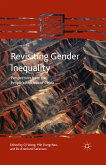Exploring the social construction of womanhood in Tswana culture, this book questions how gendered expectations are shifting in the context of a rapidly changing environment. Seismic social change is underfoot in Botswana, and gender relations are in flux. The government's enactment of extensive legal reforms, national programmes, and international instruments has gone a long way towards ensuring gender equality on an official basis. However, conventionally defined gender roles continue to present major obstacles for women.
This book explores what it means to be a woman today in Botswana. The concept of womanhood as a mark of status and responsibility is interrogated, and the social consequences of failing to meet the criteria for womanhood are explored. Stephanie S. Starling considers the multiple and often contradictory burdens women face, the strategies they employ, and the sacrifices they make to meet their obligations. Caught between traditional expectations and modern desires, women share stories of agency, creativity and struggle in defining their own paths. A reflexive account of the fieldwork is presented. confronting the ethical challenges of cross-cultural research from a feminist standpoint.
Hinweis: Dieser Artikel kann nur an eine deutsche Lieferadresse ausgeliefert werden.
This book explores what it means to be a woman today in Botswana. The concept of womanhood as a mark of status and responsibility is interrogated, and the social consequences of failing to meet the criteria for womanhood are explored. Stephanie S. Starling considers the multiple and often contradictory burdens women face, the strategies they employ, and the sacrifices they make to meet their obligations. Caught between traditional expectations and modern desires, women share stories of agency, creativity and struggle in defining their own paths. A reflexive account of the fieldwork is presented. confronting the ethical challenges of cross-cultural research from a feminist standpoint.
Hinweis: Dieser Artikel kann nur an eine deutsche Lieferadresse ausgeliefert werden.

